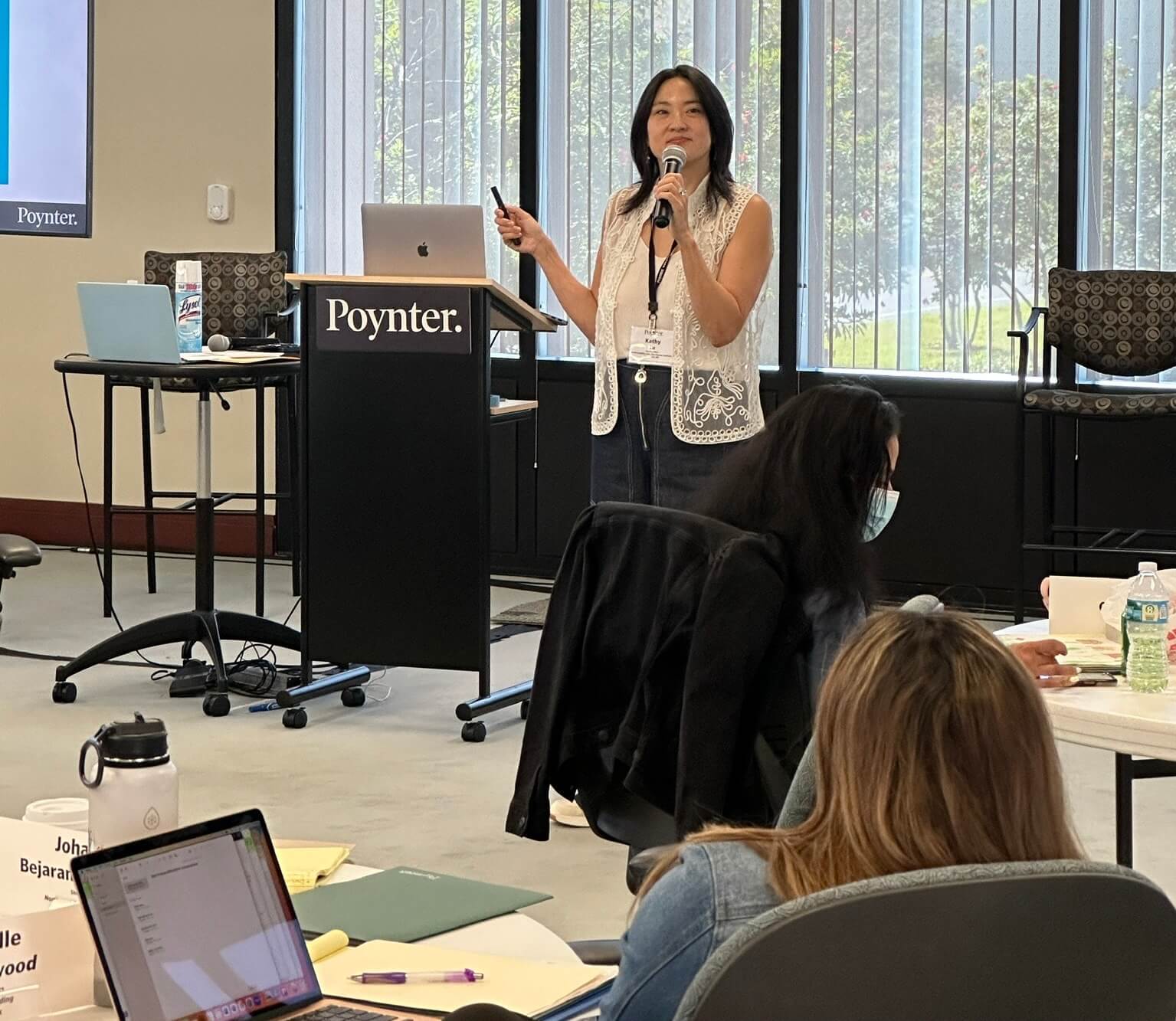Cobb County, Georgia police praised WSB TV Assignment Editor Stephanie Steiger for helping them rescue two hostages in a bank Friday.
Brian Easley, who said he was a former Marine, called Atlanta’s WSB TV and told Steiger, “I have a bomb and I’m holding people hostage.”
For 45 minutes, Steiger listened to Easley’s complaints about the Department of Veterans Affairs. She gently urged him to not hurt anyone. She asked him how he wanted to be addressed “Brian or Mr. Easley?” At one point, Steiger spoke with the two hostages who said Easley “was being very respectful.”
Chief Mike Register said Steiger did a “great job” keeping Easley calm and the information police got by listening in on the call helped them save the hostages.
“We were on the phone with police quickly,” WSB News Director Misti Turnbull told Poynter. “We were able to ‘conference in’ a police negotiator to listen in on the call.”
Police provided guidance while the call was unfolding.
“Eventually, the negotiator had us gently hand the call off to the police by telling the caller that we would still be here but that police wanted to call him and he should answer the phone to talk with them.”
Sadly, the incident ended with police killing Easley. None of the hostages were hurt.
“You know things about your team, but you see the best in them in situations like this,” Turnbull said. “These hostages and that man’s safety were our first concern.”
The whole time the station was on the phone with Easley, the station, normally noted for its aggressive coverage of spot news, didn’t report anything on the air and didn’t file anything on social media.
“We didn’t know what he was monitoring,” Turnbull said. “There was never anyone in the newsroom who questioned the decision to put people’s safety first. Once we were off the phone, we started reporting what we knew. We were behind our competition in reporting the story publicly, but ‘winning’ the reporting race was not the priority at that moment.”
Gary Noesner is the former head of the FBI’s Crisis Negotiation Unit and has been involved in high-profile hostage negotiations including standoffs involving prison riots, airliner hijackings and embassy takeovers. He was one of the negotiators at the Branch Davidian compound in Waco, Texas. Noesner told Poynter that when people in crisis call a newsroom, as Easley did, the biggest danger is that they use the call as a way to make “a closing statement.”
“If they can air their grievances and be heard by the media, it clears the way for a suicide,” Noesner said.
That was clearly on Easley’s mind as he spoke with WSB and said, “Well, I probably won’t see my daughter again.”
Steiger told him, “You can’t talk that way.”
Noesner said people in crisis contact journalists as a way to make a final statement.
“Negotiators hold out media access as a reward for compliance. The best thing for a journalist to do in a situation like this is to become a broken record. Keep saying things like ‘you really need to have this conversation with somebody who can do something about it. Let me put you in touch with a person who can help you.'”
Noesner said journalists have to fight the urge to ask a lot of the normal questions you would ask while covering a story including questions such as “are you planning to kill those people?” or “Are you planning to kill yourself?”
You may be planting a seed in the person’s mind that they had not considered. Just keep saying, “I understand you are upset. Let me help you speak to the people who can do something about it. I really feel strongly that they want to help you but I cannot help you address the issues that are of interest to you, they can.”
Noesner said negotiators also resist allowing the person in crisis to talk directly to a family member or a friend.
“They might use that conversation as an opportunity to say farewell. More often, we have used recordings from a loved one with a positive message. We do not want these conversations to be a way for the hostage-taker to put their affairs in order so they can end their life.”
WSB’s decision not to jump onto social media and spill the insider information they were getting on the phone was a good one, Noesner added.
“Sometimes police have to use social media to talk to a person in crisis. We know that the subject in crisis may be watching social media.”
After 40 years of hostage negotiation work, he has found that most cases involve people in crisis.
“The tough ones are the people whose marriage dissolved. They are contemplating self-destruction. Most of the cases are not people pulling bank heists. We have a high success rate in resolving these situations when we can talk with the person.”
If a person in crisis calls your newsroom, Noesner offers this advice:
- Contact police right away, as WSB did.
- Remain calm. Don’t overreact even if the caller is attacking you.
- Stay off social media and underreport what you know on the air. The safety of the hostages, police and the caller are your first priority.
- Become a broken record with phrases like “I understand you are upset. Let me help connect you with people who can resolve this.”
- Keep in mind that your goal is to get off the call and get it in the hands of a professional negotiator.







